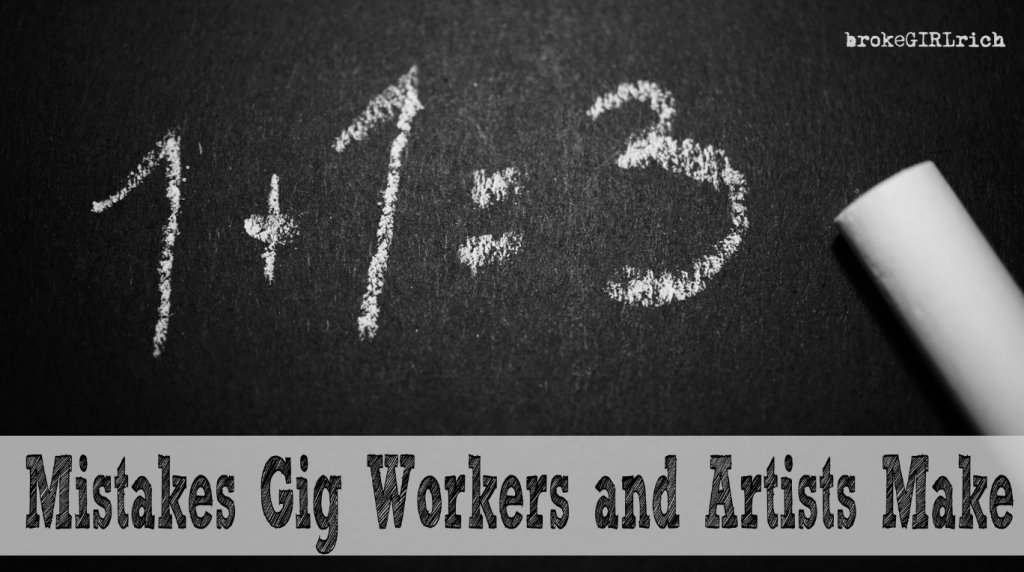
Mistakes Gig Workers and Artists Make | brokeGIRLrich
I think the number one mistake we all make at times is letting producers and hiring companies use our passion against us. It’s easy, especially at the beginning of our careers, to feel so thankful that we get paid anything to do what we love, that we accept less than we’re worth.
This is also compounded by the fact that there will always be people who can undercut what you’re offering too. They may or may not be as skilled, but there will always be a pool of people in the arts who come from families who are able to support them and because of that, they can and will work for no or little money, especially when they’re getting started.
I think that combination leads us to accept lower offers and rarely negotiate.
I think negotiation, done fairly, is rarely going to hurt you. You may not get a higher offer, but it’s unlikely that if some company has spent all this time and effort interviewing you (especially if it’s multiple rounds), that politely countering their offer with what you really want (assuming you don’t like totally shoot for the moon out of nowhere).
If negotiating makes your palms sweat, check out this excellent webinar of TheatreArtLife for negotiation tips. It’s usually $30, but if you keep an eye out, it sometimes goes on sale for 50% off.
Another common mistake we make is not keeping track of receipts and expenses during the year during the year.
If you’re self-employed, there are a lot of things you can legitimately claim as deductions on your taxes, especially if you tour.
Good record keeping makes this easy.
I use a spreadsheet and enter expenses as soon as I can. I have a little coupon organized that I put paper receipts into by category (meals, work clothes, theatre tickets, tools, etc.). If the receipt is digital, I have a Taxes 20XX file in my email and file the receipt away right after logging it on my spreadsheet.
I also use the spreadsheet to make notes that could be important if I was ever audited – like who I was with and what business we talked about for meals. What show I was working on for any travel expenses. Why a particular theatre ticket counts as “research.”
Another fairly common mistake is ignoring retirement planning.
A few dollars from an early age goes farther than a lot of dollars later. And if you manage your entire career in the arts, there will probably be long stretches of time, if not your whole career, when you have no employer retirement plans available to you.
A super easy start is to open an IRA. A Roth IRA will let you take out money tax free in retirement, but you get no tax benefit now.
A traditional IRA lets you deduct anything you contribute from your taxes, which can be a handy tool to knock yourself down a tax bracket if you were right on the cusp of one.
There are actually a number of options available for retirement planning and several do require a little more work to setup as a self-employed person, but the effort is worth it.



